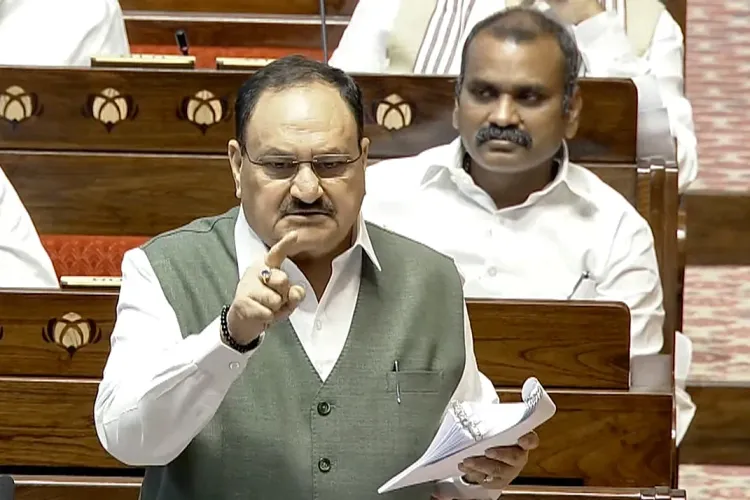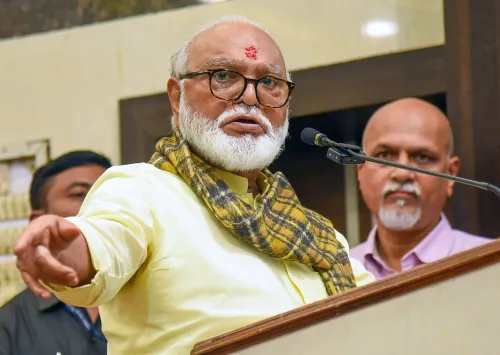What is the Latest on Sickle Cell Anaemia Screening in India?

Synopsis
Key Takeaways
- Over 6 crore individuals screened for sickle cell anaemia.
- 2.16 lakh cases identified as diseased.
- Odisha has the highest number of cases.
- National mission aims to eliminate sickle cell disease by 2047.
- Genetic counseling ID cards distributed to screenees.
New Delhi, Aug 1 (NationPress) Over 6 crore individuals have undergone screenings for sickle cell anaemia across the nation, with 2.16 lakh identified as affected, as reported by Union Health Minister JP Nadda in Parliament on Friday.
In response to a Lok Sabha inquiry, Nadda revealed that the screenings took place in 17 states.
According to data available until July 28, a total of 6,04,50,683 individuals in these states, predominantly tribal areas, have been screened, among which 2,16,118 have been confirmed as diseased.
Moreover, over 16.7 lakh of those diagnosed are carriers of the condition.
Notably, Odisha leads the states with sickle cell disease, recording 96,484 cases on the sickle cell portal. This is followed by Madhya Pradesh (30,580 cases), Gujarat (28,150), Maharashtra (23,218), and Chhattisgarh (26,104).
Other states with significant case numbers include Rajasthan (2,729), Andhra Pradesh (2,159), and Jharkhand (2,154).
In contrast, Uttar Pradesh, Bihar, and Uttarakhand showed lower case counts, reporting 285, 32, 8, and 6 cases respectively.
As of July 28, 2,62,67,997 genetic counselling ID cards have been issued nationwide. These cards, distributed post-screening, indicate whether an individual is normal, a carrier (Sickle Cell Trait), or has Sickle Cell Disease.
Nadda emphasized that screenings for sickle cell are available at all healthcare facilities, from district hospitals to Ayushman Arogya Mandir (AAM) level. Hydroxyurea, the standard therapy for sickle cell disease, is now part of the National Health Mission’s (NHM) essential drugs list for sub-health centres.
Sickle Cell Disease is a chronic, single-gene disorder leading to debilitating systemic issues, characterized by chronic anaemia, painful episodes, organ infarction, and chronic organ damage, which severely impacts life expectancy.
This genetic blood disorder significantly affects patients’ lives, causing various serious health complications.
To combat the disease, the National Sickle Cell Anaemia Elimination Mission (NSCAEM) was initiated by Prime Minister Narendra Modi in July 2023.
The mission aims to eradicate sickle cell disease as a public health concern in India before 2047 by screening 7 crore individuals aged 0-40 years in affected tribal regions by the fiscal year 2025-26.









